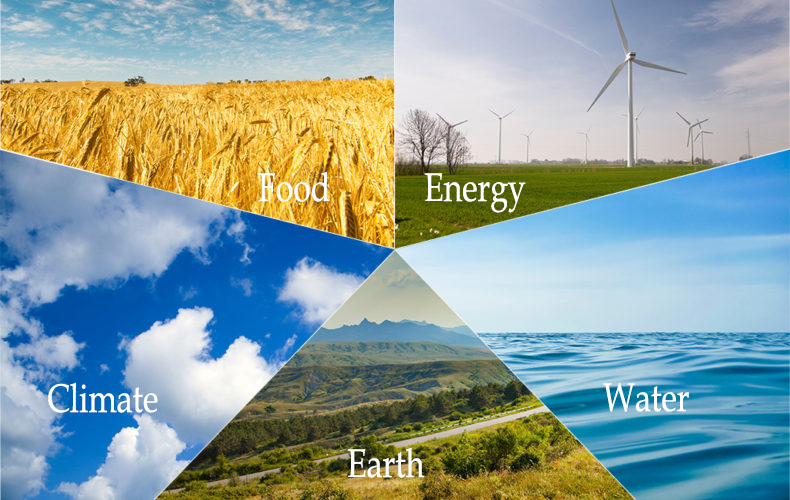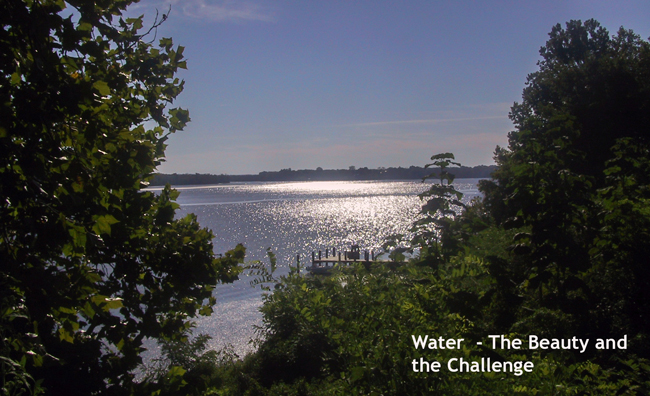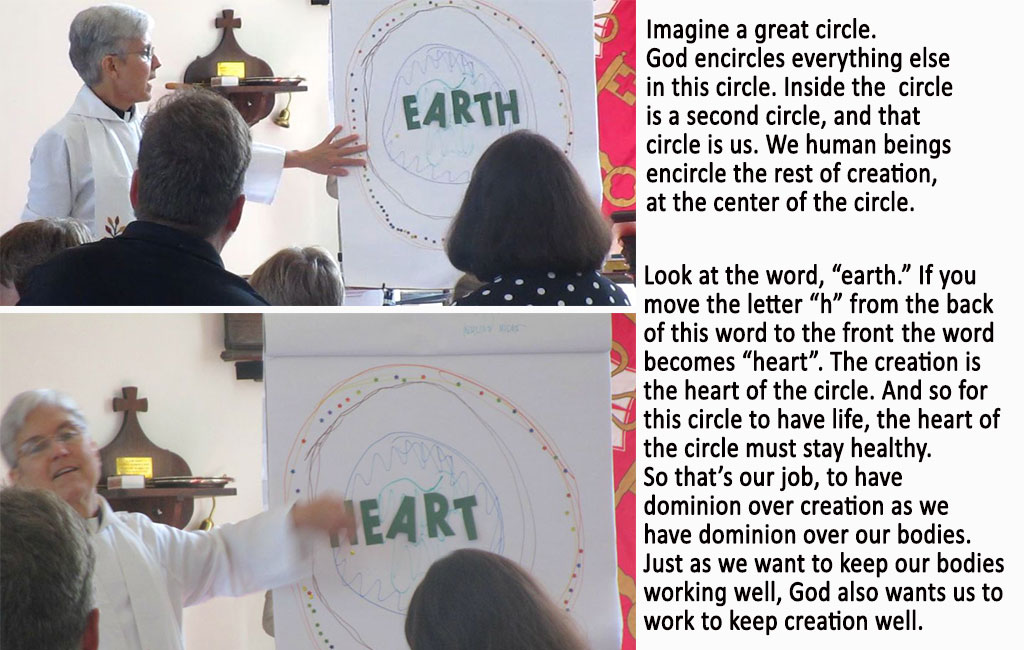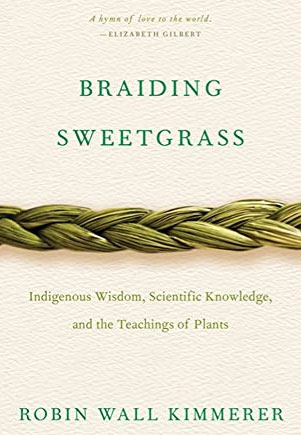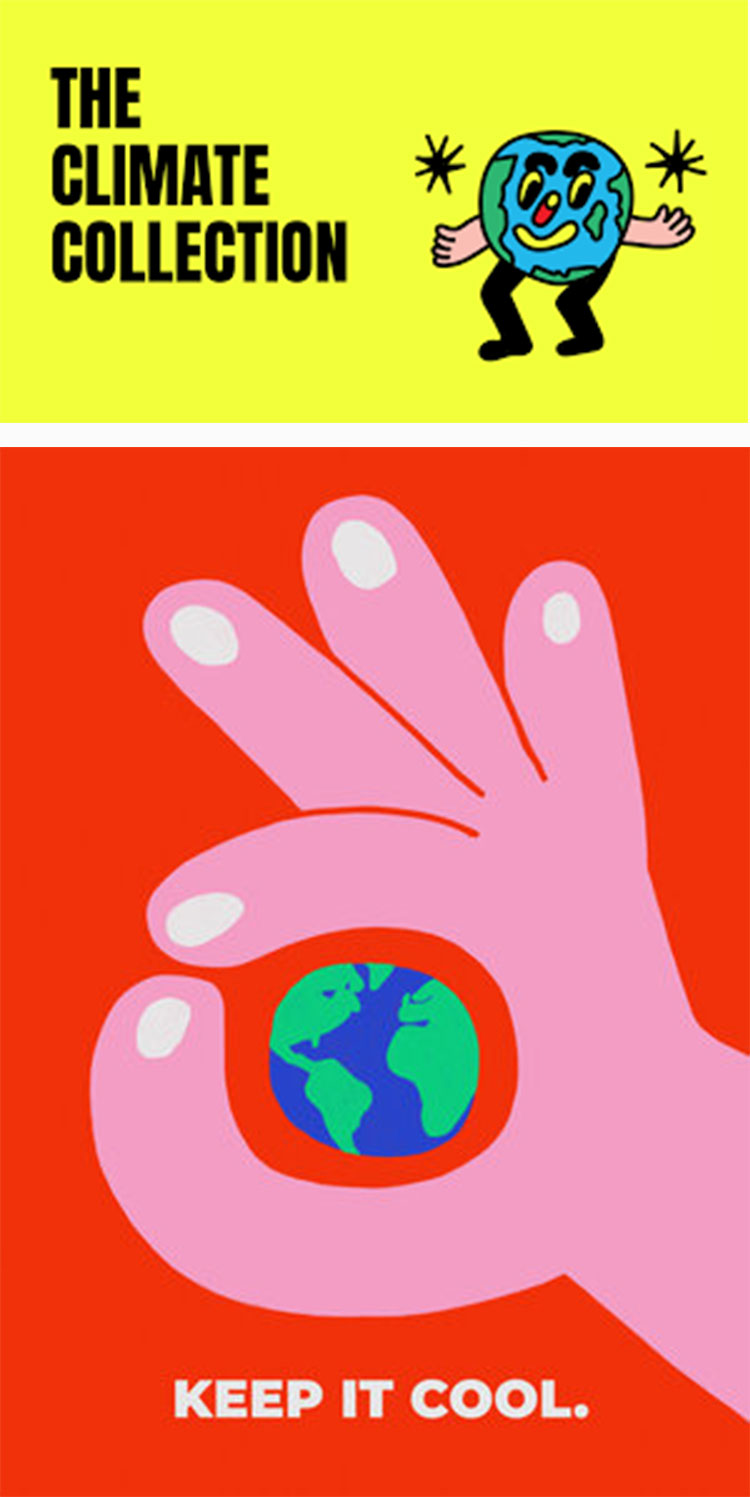From canarymedia.com
1. The U.S. climate law is fueling a factory frenzy.
The Inflation Reduction Act, signed into law in August 2022, aimed to bring a clean energy manufacturing boom to the U.S. through generous subsidies. So far, the plan is working: In the law’s first year, more than 100 new clean energy manufacturing facilities or factory expansions were announced, adding up to nearly $80 billion in new investment from private companies
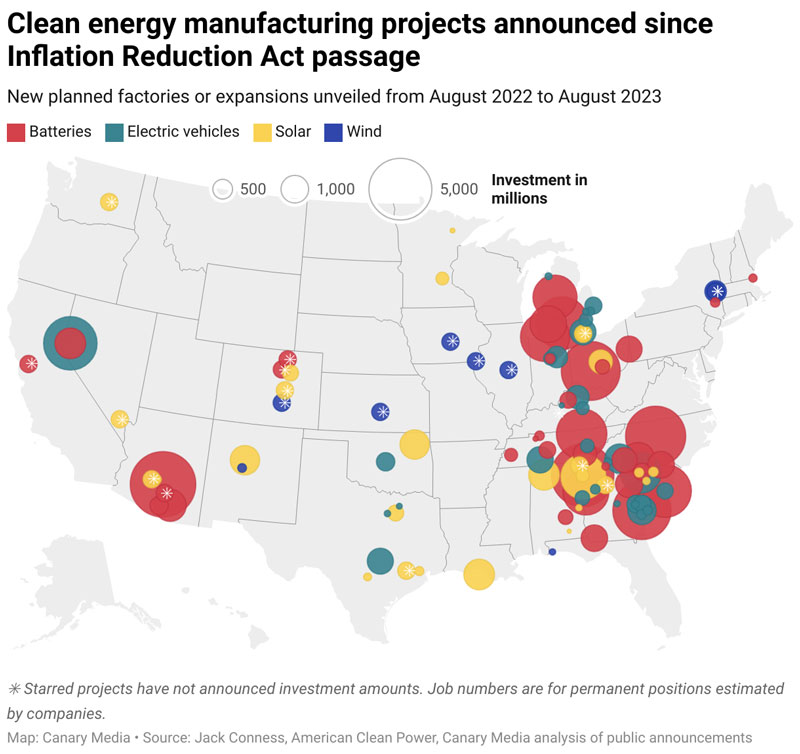
2. Renewables are on track to keep getting cheaper and cheaper
While fossil fuels have not gotten cheaper with time, renewable energy costs have plummeted over the past few decades. That’s made them more cost-effective than fossil fuels in many cases — and also more attractive to new investments. These cost declines are not expected to stop anytime soon. In fact, by 2030, technology improvements could slash the price of wind energy by a quarter and of solar by half.
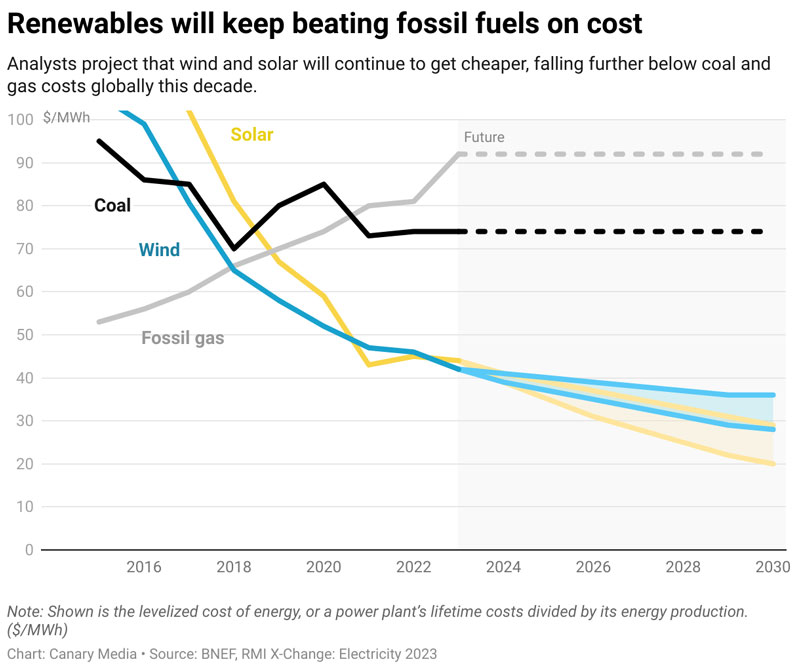
Though they still make up just 20 percent of overall power generation, solar, batteries and wind account for the most new power flowing to the U.S. grid — and it’s not even close. In 2023, clean energy will have accounted for the vast majority of all new power capacity added to the U.S. grid, while fossil-fueled plants will make up just 16 percent of new capacity.
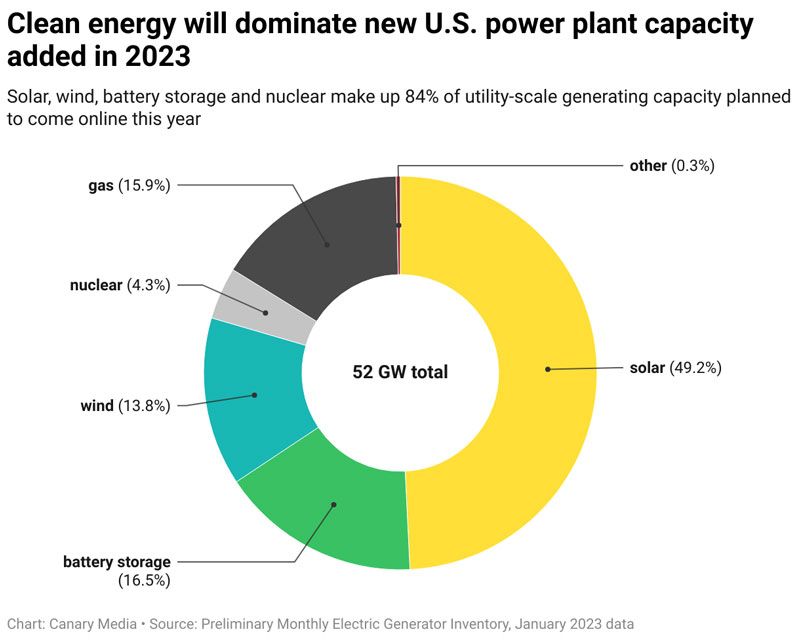
All-electric vehicles (also known as battery electric vehicles or BEVs) are powered by an onboard battery that stores electrical energy, according to the U.S. Department of Energy’s Alternative Fuels Data Center. Unlike conventional gas-powered or hybrid vehicles, EVs rely solely on electricity for propulsion. The Environmental Protection Agency (EPA) classifies EVs as zero-emissions vehicles due to the lack of exhaust or tailpipe emissions expelled.
Despite recent gloomy headlines, the U.S. electric-vehicle market has soared. According to marketwatch “Electric car sales have taken off in the U.S. since 2020. About 1.6 million EVs were sold in the U.S. in 2023 — a 60% increase from the 1 million sold nationwide in 2022.

